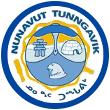(Iqaluit, Nunavut) Nunavut Tunngavik Inc. Vice-President of Finance, Raymond Ningeocheak is calling on the Nunavut Wildlife Management Board not to make a hasty decision on Baffin Bay without full consideration of Inuit Qaujimajatuqangit.
Inuit feel that their knowledge is being ignored.
“Hunters are on the land 12 months out of the year and are constantly observing the land and animals on their travels. Over the last several years, hunters in the Baffin Bay region have observed an increase in polar bears.” said Ningeocheak.
The Nunavut Wildlife Management Board is currently reviewing the total allowable harvest for the Baffin Bay polar bear subpopulation. The average harvest for Baffin Bay from Nunavut communities from 1998 to 2007 was 77. For the same time period, the average harvest in Greenland was 111.
However, Greenland was absent again in the public hearing that took place in a community that would not be directly affected by any potential harvest reduction.
“Any decision made at this time may be premature and negatively impact the current negotiations between Greenland and Canada on the Memorandum of Understanding being developed by the two nations on shared management of the Baffin Bay population”
Inuit are concerned that the population estimate being used by the Government of Nunavut is a computer model simulation with no verification. The last scientific estimate of 2100 polar bears was completed in 1997.
“The fact that the data used by the government’s researchers is over ten years old should raise red flags.” said Ningeocheak.
Inuit noted increased hardship due to damage to cabins, equipment, and caches.
“Any decrease in the Total Allowable Harvest will create more hardship on Inuit. Inuit will suffer more damage to property and more dangerous encounters with bears.”
“Inuit are conservationists. It has always been in the interest of Inuit to maintain healthy populations of all wildlife. Our tradition of having deep respect for the land and animals goes back many generations. It has always been known that without them we as people could not survive the harsh arctic conditions. To this day, respect for the land and animals are a cornerstone of our culture” concluded Ningeocheak.









